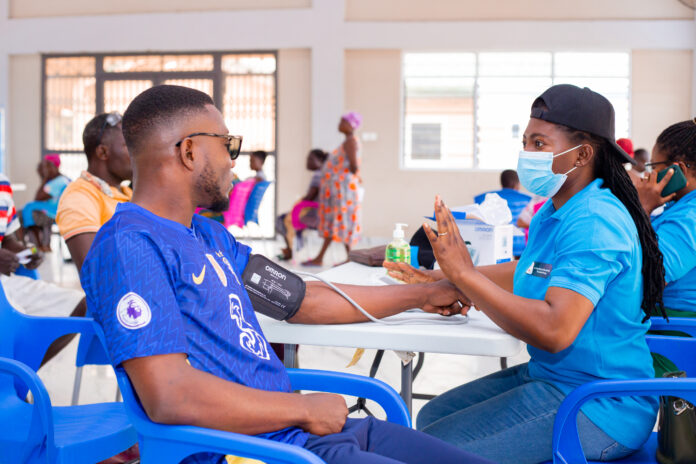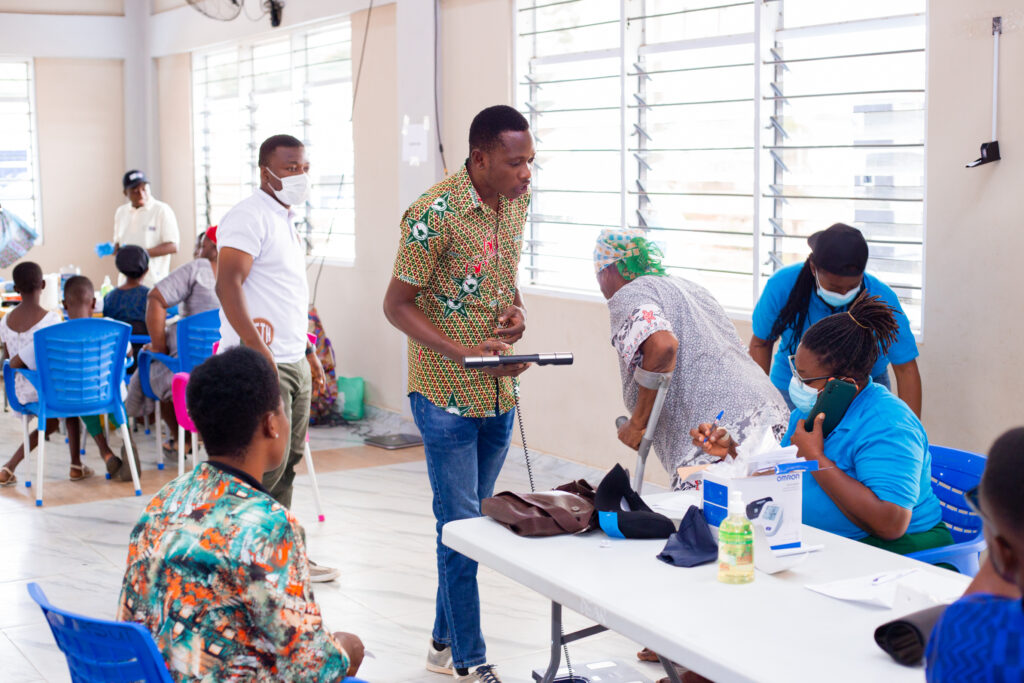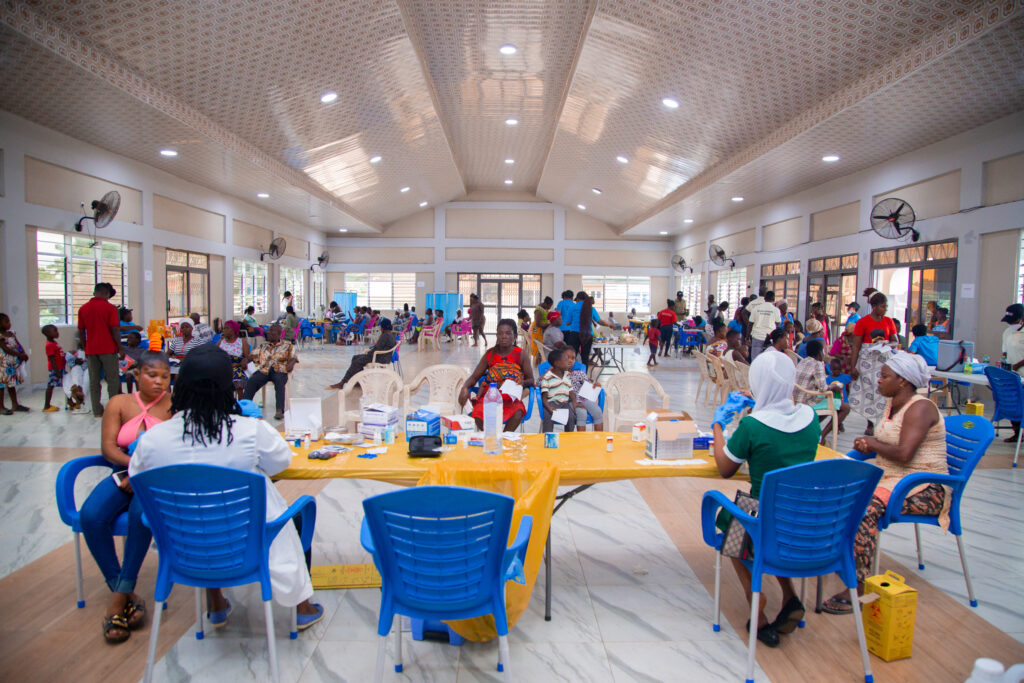
“This is a very brilliant exercise that would save lives if we could do periodically because I know there are people who stay at home, go into shock or show deteriorating conditions before they are rushed to the hospitals. If we could get funding, we should do it periodically to help the people,” stated Rev. Ebenezer Asiamah, District Director of Health Services for Shai Osudoku, at a medical screening spearheaded by Golden Exotics, producers and exporters of banana and the Deutsche Gesellschaft für Internationale Zusammenarbeit (GIZ) GmbH.
Both the young and old thronged the Pentecost Central Assembly to receive a clean bill of health. Unfortunately, many were given referrals for further testing and follow up care at the Shai Osudoku Health centre, while others were asked to go for counseling on high blood pressure and their diet. Rev. Asiamah said the screening is a first point of call to pick up on conditions that otherwise might be hiding because of poor health seeking behavior of the people which he attributed to poverty and often lack of the NHIS card.

The exercise is one of many activities under the COVID 19: Comprehensive Pandemic Management for Employees, Families and Communities project funded through the GIZ-implemented develoPPP programme on behalf of the German Ministry of Economic Cooperation and Development (BMZ). The project is aiming to strengthen the Ghanaian Health system by supporting government in accessing real time data delivered by systems such as the “Surveillance, Outbreak Response Management and Analysis System (SORMAS) regarding availability of health workers, outbreak and disease evolution, availability of supplies and consumables. The overarching objective of the project is to ensure pandemic preparedness of companies and municipal and district assemblies for better epidemic response and that communities and employees of companies partnering in the project are resilient and ready to withstand future pandemic.
Screening covered non communicable diseases like hypertension, diabetes, malaria, and upper respiratory tract infections. Those who opted for could also test for HIV/AIDS and vaccinate against covid-19. According to Rev. Asiamah, Asutuare and its environs are mainly surrounded by water bodies and untarred dusty roads and residents often present with cough, cold, flu, malaria, etc. He said “reduced immunity equals higher risk of infection. That is why today we are screening for some of these conditions. The earlier we pick up on a condition, we can counsel the patient around diet and lifestyle. Once the diet is modified and the lifestyle is changed, the person will be able to reverse the condition unless it is far advanced”.

The Assistant Manager for Sustainability and Communications at Golden Exotics, Lilian Yvonne Karikari, said the 3,800-man company is happy to partner GIZ “on such a worthy project to ensure we build the health resilience of our workforce and our operating community. This way, we are ensuring business continuity and readiness for future pandemics”.
Under the Pandemic Management project, Golden Exotics together with other private partners are helping to ensure that healthcare systems within catchment communities are strengthened through preventive health activities and social and behavioral change communication. It is also expected that companies would enhance workplace safety policies, improve employee benefits and insurance and increase awareness and education on occupational health and safety standards and protocols.

